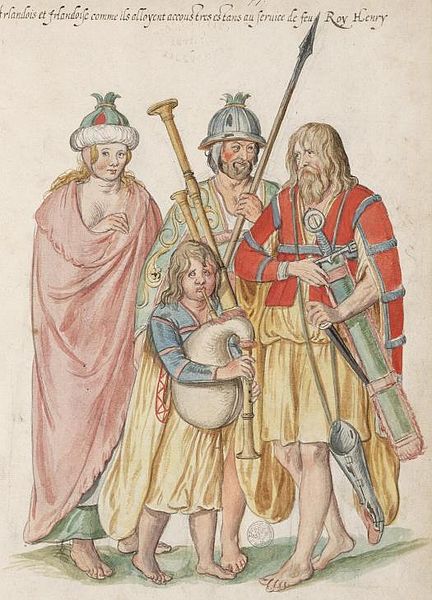John Scotus Eriugena, also known as Johannes Scotus Erigena, John the Scot, or John the Irish-born was an Irish Neoplatonist philosopher, theologian and poet of the Early Middle Ages. Bertrand Russell dubbed him "the most astonishing person of the ninth century". The Stanford Encyclopedia of Philosophy states that he "is the most significant Irish intellectual of the early monastic period. He is generally recognized to be both the outstanding philosopher of the Carolingian era and of the whole period of Latin philosophy stretching from Boethius to Anselm".
Scotus on the £5 note
Irish people are an ethnic group and nation native to the island of Ireland, who share a common ancestry, history and culture. There have been humans in Ireland for about 33,000 years, and it has been continually inhabited for more than 10,000 years. For most of Ireland's recorded history, the Irish have been primarily a Gaelic people. From the 9th century, small numbers of Vikings settled in Ireland, becoming the Norse-Gaels. Anglo-Normans also conquered parts of Ireland in the 12th century, while England's 16th/17th century conquest and colonisation of Ireland brought many English and Lowland Scots to parts of the island, especially the north. Today, Ireland is made up of the Republic of Ireland and Northern Ireland. The people of Northern Ireland hold various national identities including British, Irish, Northern Irish or some combination thereof.
Carrowmore tomb, c. 3000 BC
Finnian of Clonard imparting his blessing to the "Twelve Apostles of Ireland"
Irish Gaels in a painting from the 16th century
A 16th century perception of Irish women and girls, illustrated in the manuscript "Théâtre de tous les peuples et nations de la terre avec leurs habits et ornemens divers, tant anciens que modernes, diligemment depeints au naturel". Painted by Lucas d'Heere in the 2nd half of the 16th century. Preserved in the Ghent University Library.





